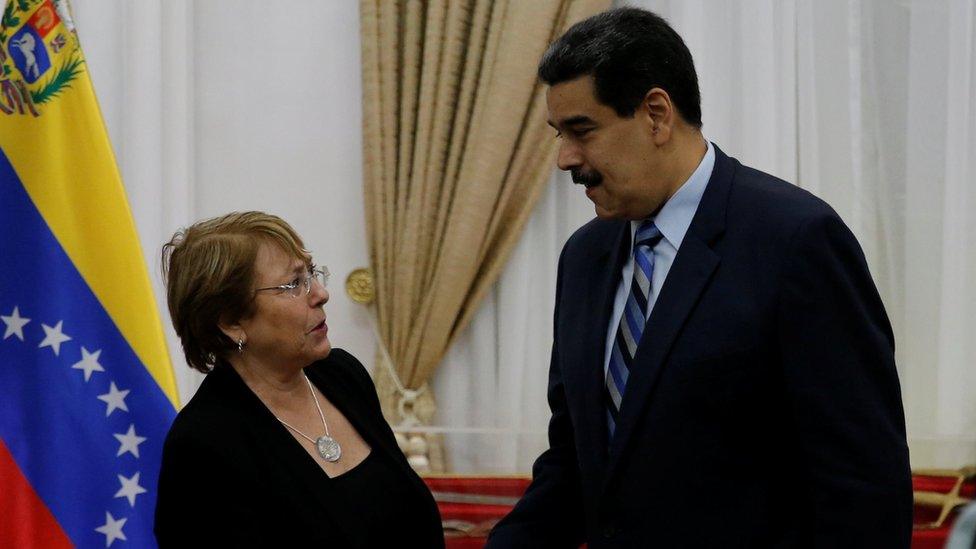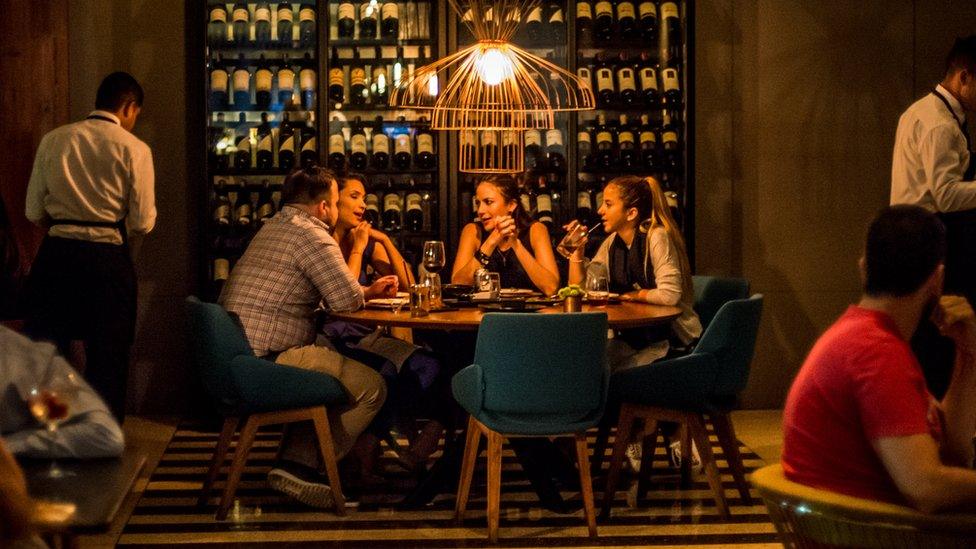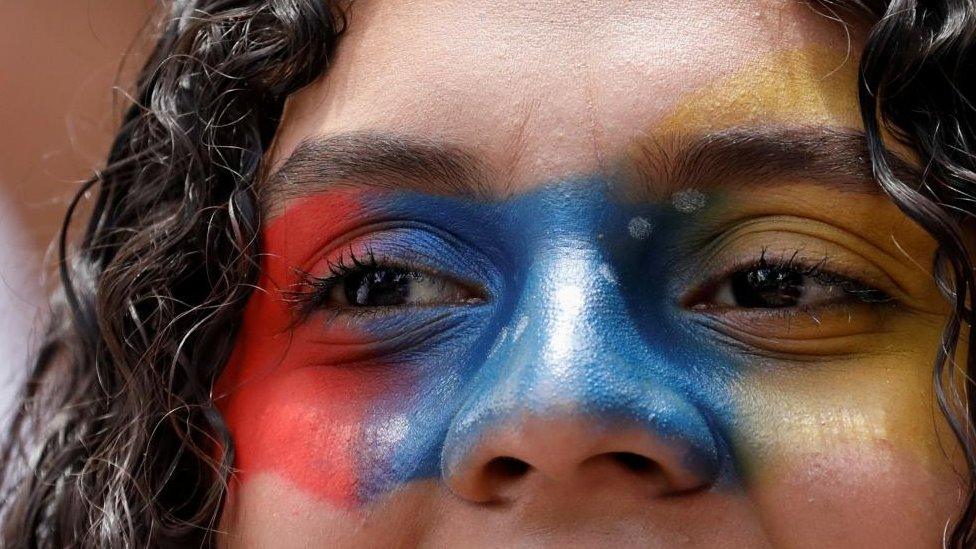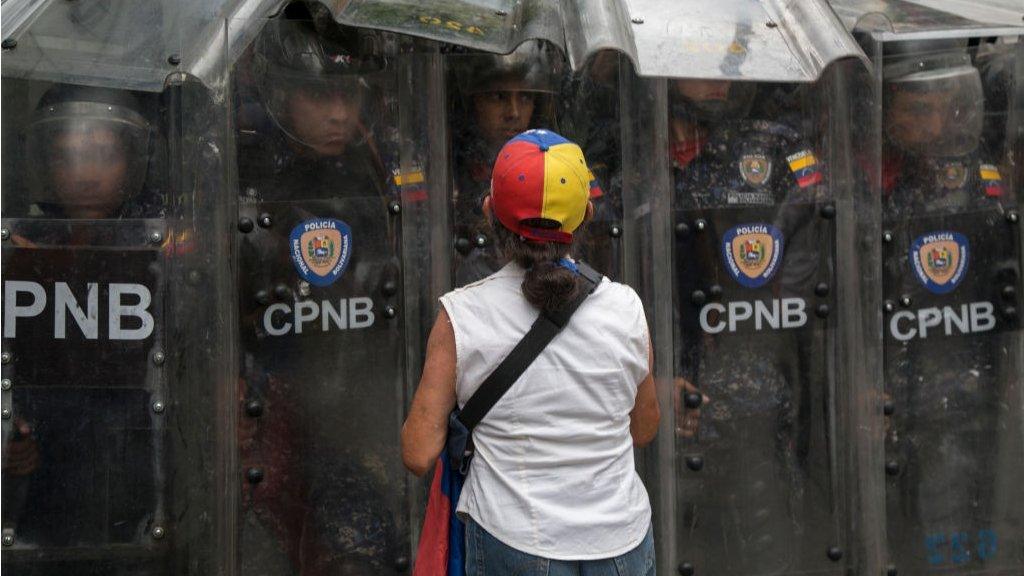Venezuela crisis: Army and police officials detained, activists say
- Published

UN human rights chief Michele Bachelet met President Maduro in Caracas on Friday
Six members of Venezuela's military and police have been arrested, activists say, weeks after a failed uprising against President Nicolás Maduro.
They include an Air Force brigadier general and former police officers. The government has not yet commented.
Some of the arrests took place as UN human rights chief Michelle Bachelet finished a visit to the country.
She called on Mr Maduro to release people arrested for peacefully protesting.
President Maduro has intensified a crackdown on the opposition since a failed military uprising led by opposition leader Juan Guaidó on 30 April.
More than 700 people have been detained in Venezuela for political reasons, including 100 members of the military, according to local rights group Foro Penal.
Air Force Brig Gen Miguel Sisco Mora was arrested on Friday in a parking lot in the city of Guatire, some 40km (25 miles) east of the capital Caracas, his daughter said on Twitter.
Navy Corvette Capt Rafael Costa was arrested in nearby Guarenas also on Friday, according to his wife, while retired Air Force Col Francisco Torres was arrested by members of the Sebin intelligence agency in his home in Caracas, his daughter said.
The other arrested included retired Air Force Col Miguel Castillo Cedeño, and José Valladares and Miguel Angel Ibarreto, former high-ranking officials at the forensic police agency (CICPC), Foro Penal said.
Allow X content?
This article contains content provided by X. We ask for your permission before anything is loaded, as they may be using cookies and other technologies. You may want to read X’s cookie policy, external and privacy policy, external before accepting. To view this content choose ‘accept and continue’.

Organization of American States Secretary-General Luis Almagro, a vocal critic of President Maduro, has called on the country's "dictatorship" to provide information about those detained, saying the "repression and torture must end in Venezuela".
Speaking in Caracas at the end of her three-day visit, Ms Bachelet called for the release of "all those who are detained or deprived of their liberty for exercising their civil rights in a peaceful manner".
Mr Maduro, whose government has been accused by activists of serious human rights violations, said he would take her "suggestions, recommendations and proposals seriously".
Venezuela crisis: The four countries interested in the presidential battle
The crisis in Venezuela deepened in January after Mr Guaidó, head of the National Assembly, declared himself interim president, arguing that Mr Maduro's re-election last year had been "illegitimate".
He has since been recognised by more than 50 countries, including the US and most of Latin America. But Mr Maduro retains the loyalty of most of the military and important allies such as China and Russia.
Since April's failed rebellion, described by Mr Maduro as part of a US-orchestrated coup, many opposition parliamentarians have lost their parliamentary immunity and some have been arrested. While Mr Guaidó's parliamentary immunity has been lifted, he has so far not been jailed.
Some four million people have fled Venezuela since 2015, according to the United Nations, amid a severe year-long economic crisis that has resulted in high unemployment and chronic shortages of food and medicine.
- Published14 May 2019

- Published5 August 2024

- Published12 August 2021
